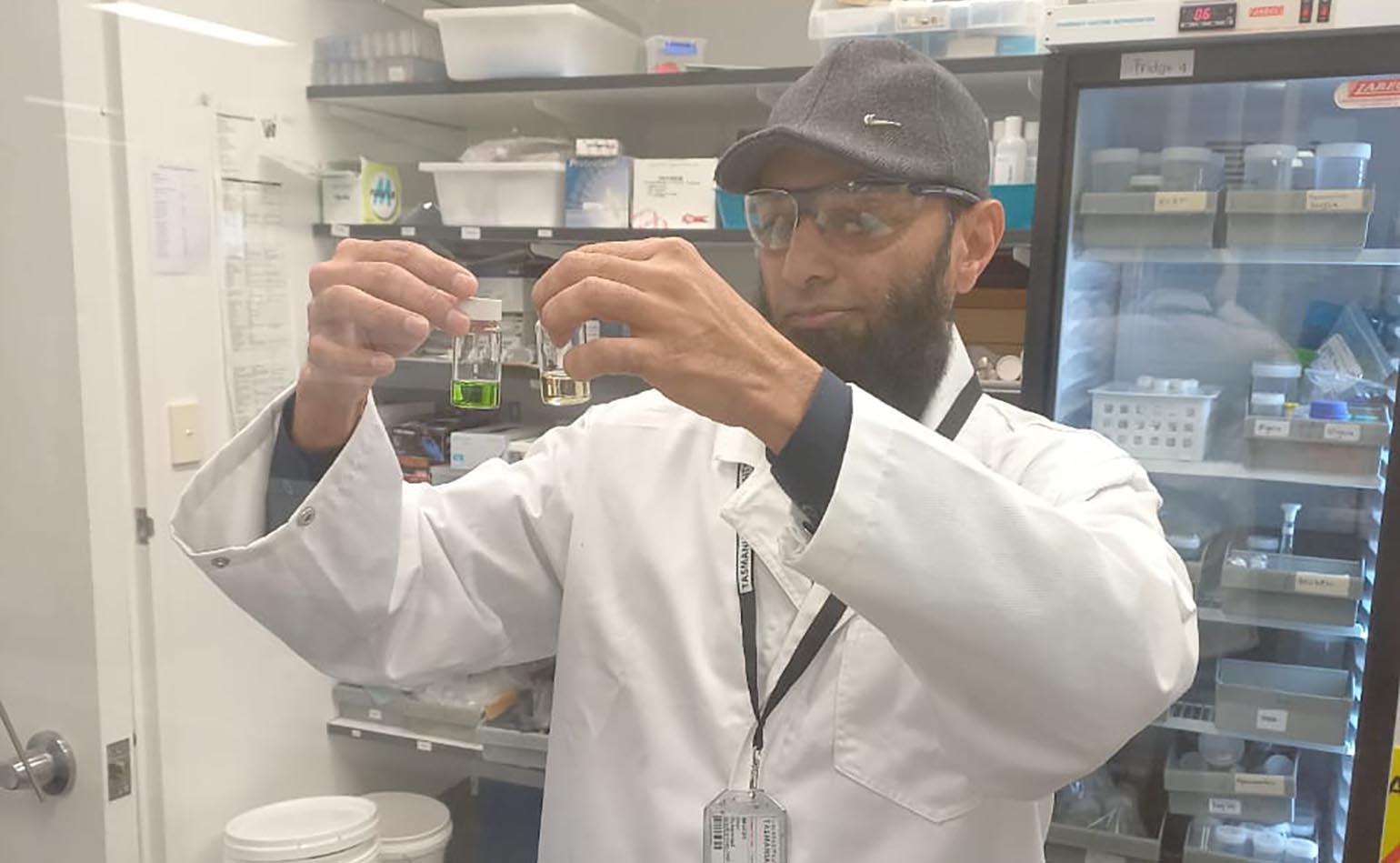The Soil CRC is pleased to introduce our newest PhD student, Muhammad Salik Ali Khan, who is based at the University of Tasmania in Hobart. Muhammad was born and raised in Lahore, Pakistan’s second largest city and home to over 13 million people.
“Growing up in a large city, I was intrigued by rural life,” Muhammad said. “I was fascinated by the farmers working in clean and healthy environments – ploughing fields and picking fruit.”
It was this curiosity that led Muhammad to choose a career in Agriculture. He completed an honours degree at the University of Agriculture in Faisalabad, Pakistan, before accepting a job in the Punjab Government’s Agriculture Department.
From here, Muhammad was keen to find new ways to enhance his skills and expand his experience. Seeing videos of broadacre farming in Australia fuelled his passion, so he started exploring postgraduate opportunities Down Under.
“In 2016 I was awarded an Australia Awards Scholarship for to study Soil Science and Plant Nutrition at the University of Western Australia (UWA) in Perth,” he said. And so, a new adventure began.
Muhammad excelled in his studies and was awarded the Sir Eric Smart Scholarship through the UWA Institute of Agriculture to complete his final year research project. This recognition boosted his enthusiasm to continue a career in soil science.
“I’m incredibly thankful to Emeritus Professor Lynette Abbott, whose supervision during my time at UWA helped me to polish my skills and achieve the success that I did,” he said.
In 2018, Muhammad returned to his home country and resumed his post at the Agriculture Department. But his Australian journey wasn’t over yet.
“My job at the Agriculture Department included soil testing for fertility, which was carried out using conventional and tedious methodologies,” he said.
“I was in search of innovative techniques, and luckily, I came across the academic profiles of Professor Michael Breadmore and Dr Fernando Maya Alejandro at the University of Tasmania, who both have remarkable competency in developing microfluidic chips using 3D printing.
“They were advertising a Soil CRC and University of Tasmania PhD scholarship to develop and optimise a ‘Soil Health Chip’. The project sounded very attractive and innovative – it ignited a spark in me, and now here I am at UTas embarking on a PhD and making my dream a reality.”
Muhammad’s PhD will further develop a microfluidic soil health chip capable of rapidly testing soil in-field, with accuracy and economically. A chemical reaction will take place in the transparent chip, and a colour specific to that reaction will develop. This colour will then be translated into meaningful numbers using a mobile phone camera.
“Twenty percent of greenhouse gas emissions come from the agriculture sector, with nitrogen fertiliser production and use playing a lead role,” Muhammad explained.
“We need to shift from conventional practices to precision agriculture to help reduce nitrogen fertiliser use and therefore emissions.
“Farmers need to apply fertiliser considering the yield-potential of their soil. High performing soils should have an adequate supply of fertilisers compared to low performing soils. So, farmers need to evaluate the nutrient status of their soils before fertiliser application.
“However, methodologies currently applied across the world are time consuming, expensive, and cumbersome,” Muhammad explained.
“With this technology, farmers will be able to apply fertilisers more precisely and site-specifically. The rapid nature of the soil health chip will also enable farmers to quickly diagnose nutrient disorder and its management.”
Soil science is now part and parcel of Muhammad’s life. He likens the inspiration he gets from working in agriculture to planting and harvesting a crop – rewarding and cyclical.
“As a researcher, when I sow the seeds of a crop, I sow the seeds of my interest,” he enthused. “My interest grows as the crop grows, and it is at its peak when the crop gives the expected results of my research plan. After the harvest, the new experimental plan is tested in the field, and this cycle goes on”.
Muhammad said he has a great interest in plant nutrition – he even had a rooftop experimental garden in his home country, where he attempted to optimise nutrient solutions for different vegetables and plants.
“Now, I am doing what I love and enjoying all aspects of my PhD studies – from working in the lab, engaging with my supervisory team, to learning new techniques,” he continued.
“Working with the Soil CRC team has been fantastic so far, particularly the support I receive from the PhD Program Manager Dr Cassandra Wardle, which has made my transition to this new endeavour so much easier.”
The Soil CRC is excited to have Muhammad onboard and honoured to be part of his PhD journey.
Find out more
Connect with Muhammad on:

